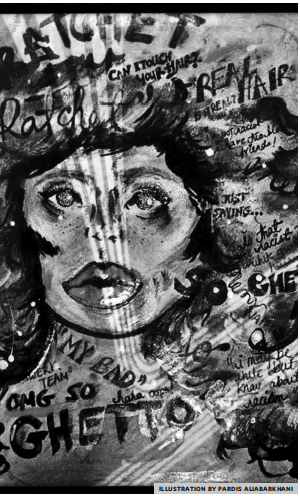 Hip-hop has done so much for racial relations, and I don’t think it’s given the proper credit. It has changed America immensely,” Jay-Z famously stated in 2009.
Hip-hop has done so much for racial relations, and I don’t think it’s given the proper credit. It has changed America immensely,” Jay-Z famously stated in 2009.
“I’m going to make a bold statement: hip hop has done more than any leader, politician, or anyone to improve race relations.”
But an objective view of this statement would see an enterprising man emphasizing only one side of the story.
Jay-Z, the second-richest rapper, next to P. Diddy, with a net worth of $500 million, fails to understand the basis of the cultural hegemony he helps to perpetuate through glamour and materialism.
Outkast’s Andre 3000 conveyed this message best when he said, “Hip hop don’t have no fresh energy, none at all. It’s money-driven, everybody tryin’ to make that cheque, nobody putting art in their albums any more.”
Mainstream hip hop has been eaten by consumerism, and all that remains is a distorted view of black identity that millions of people see as an accurate representation.
Dalton Higgins, author of Far From Over: The Music and Life of Drake, tells us, “There was a time […] when artless songs couldn’t and wouldn’t get the time of day, where being smart and versed on one’s cultural identity was en vogue and rewarded.” His examples include Outkast, Public Enemy and De La Soul.
“[They] wanted little to do with publicly degrading women in their songs, acting like buffoons, etc.,” he continues.
Unfortunately, times have changed in the industry, and what’s now in-style have repercussions in a variety of places.
Scholars have been debating the influence of hip hop on the social identity of black youth for decades.
One side believes hip hop shows how artists have used the genre to further their political interests and struggle for rights.
Higgins points to Canada’s rap scene: “This generation ain’t flocking in large numbers to go see jazz, blues, classical, or opera concerts. Go to a hip hop concert in Toronto, and you will see a miniature, United Nations-style demo, which is refreshing.”
On the other side, the mainstream, best-selling commercial hip hop is made of artists superficially representing the gangster rap ethos of “bling-bling” materialism, violence, and misogyny.
Higgins posits, “Is 2 Chainz declaring that all he wants for his birthday is a big booty ho doing anything to advance the view that many have of black women, or black men? I think not.”
The commodification of blackness has played a significant role in developing this new, marketable form of black identity.
Dr. Anthony Kwame Harrison of Syracuse University, who wrote his dissertation on West Coast underground rap music, wrote that scholars must consider the media and corporate entities, which benefit most from the commercialization of hip-hop culture, whose advertising revenue pays for music programming.
“It’s the partnership of hip hop and corporate media that’s brought us the negative images and the rap music that people complain most about,” according to Harrison.
Hip-hop is not only a musical genre, but also part of a larger culture, which includes other forms of media such as movies, television, art, and social media. In its widespread reach, it bears great influence on public perception.
Right under our noses, the hip hop behemoth has gone from fighting the capitalist rulers to identifying with them. Image was always important, but not necessarily the one that makes money.
“Contemporary rappers are really quite genius in some respects,” Higgins concludes. “They have mastered the formula that sex, drugs, and rock n’ roll sells. Just substitute the rock n’ roll with rap.”
Ryan Moore
Contributor


